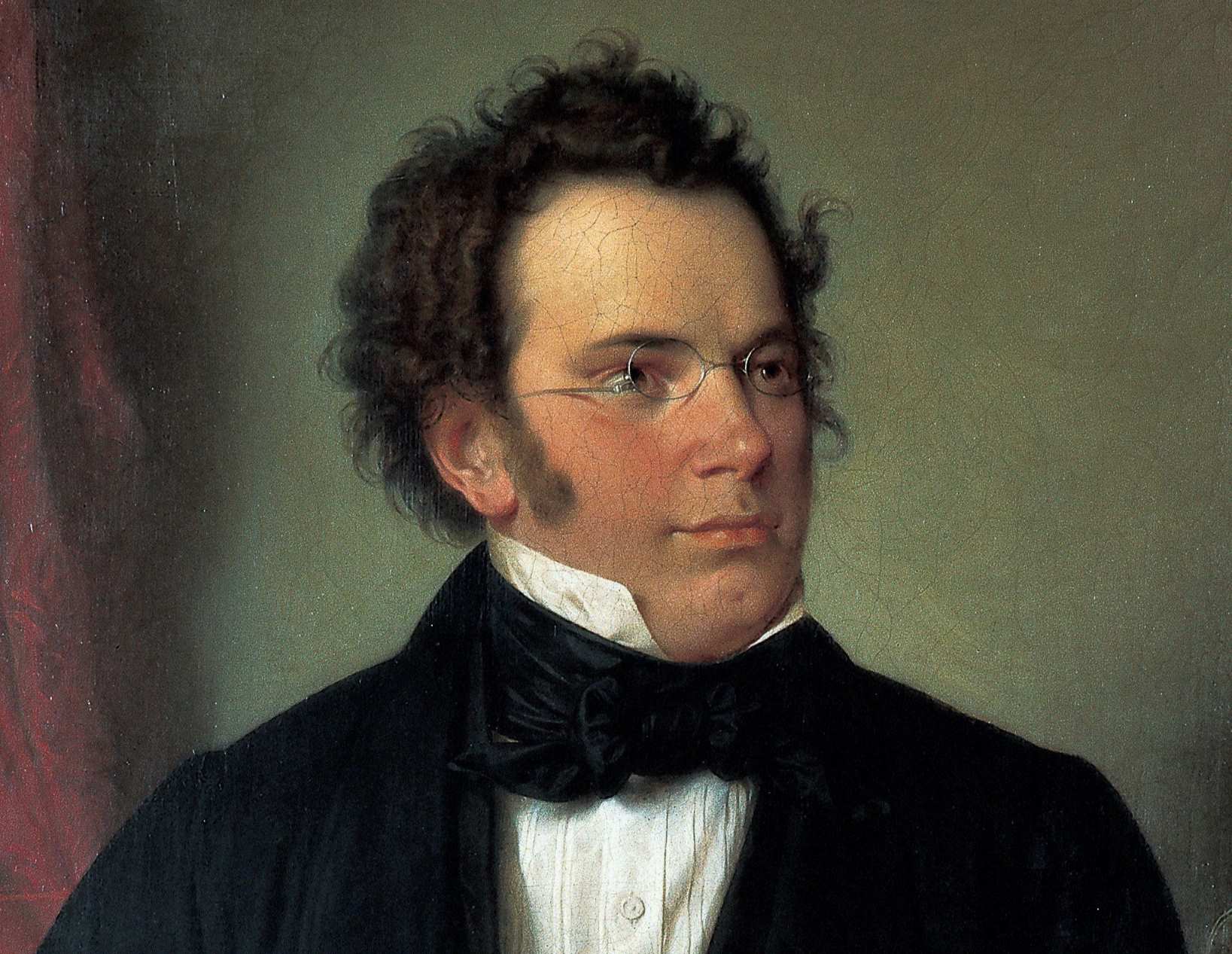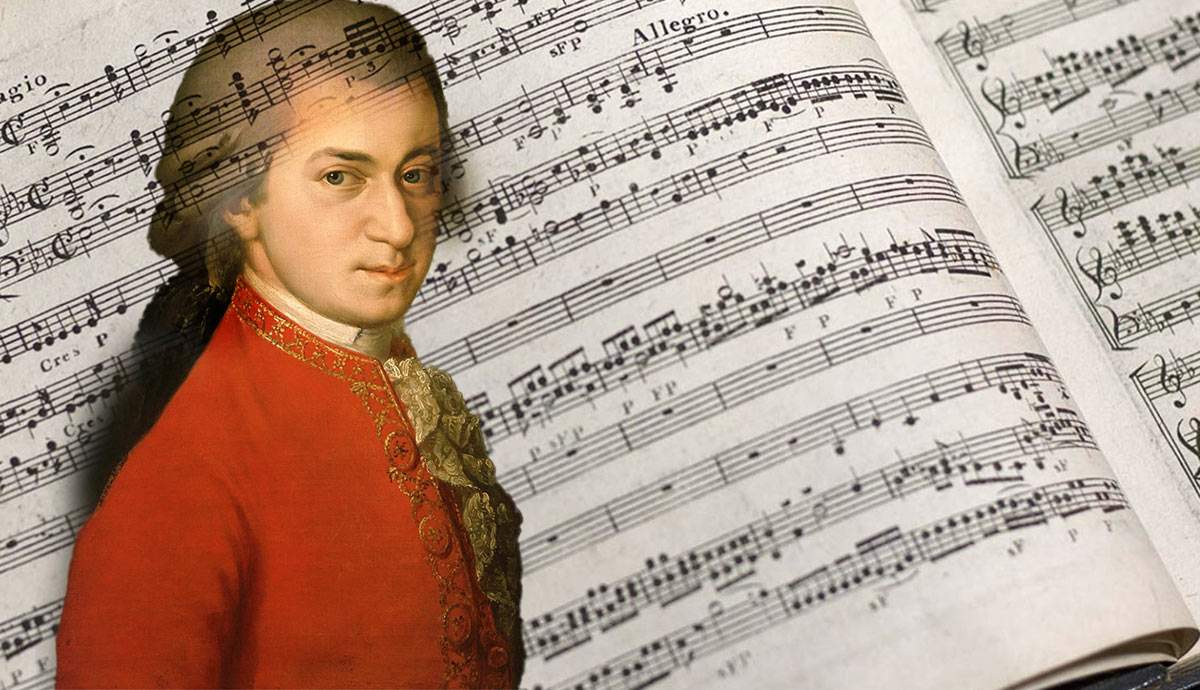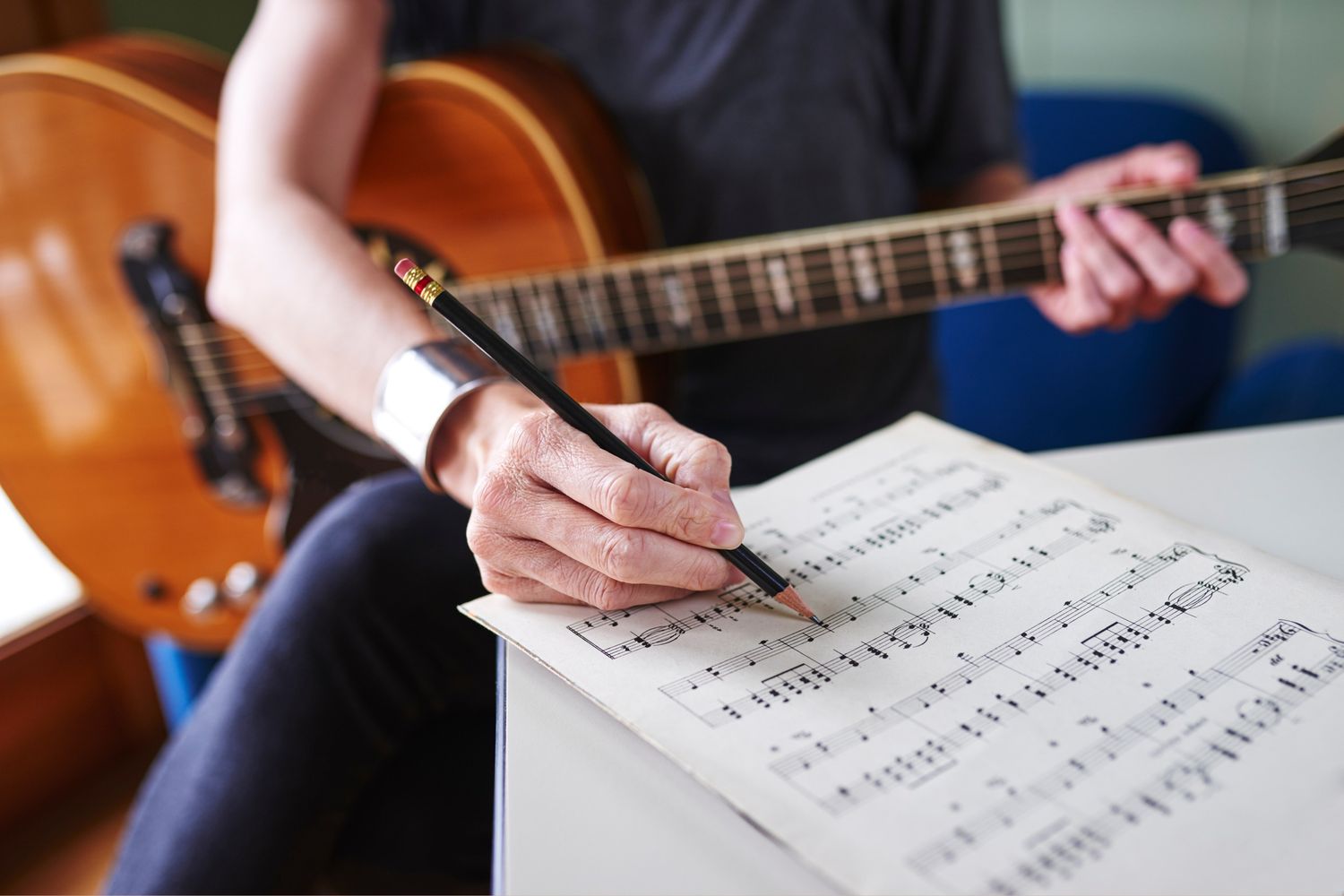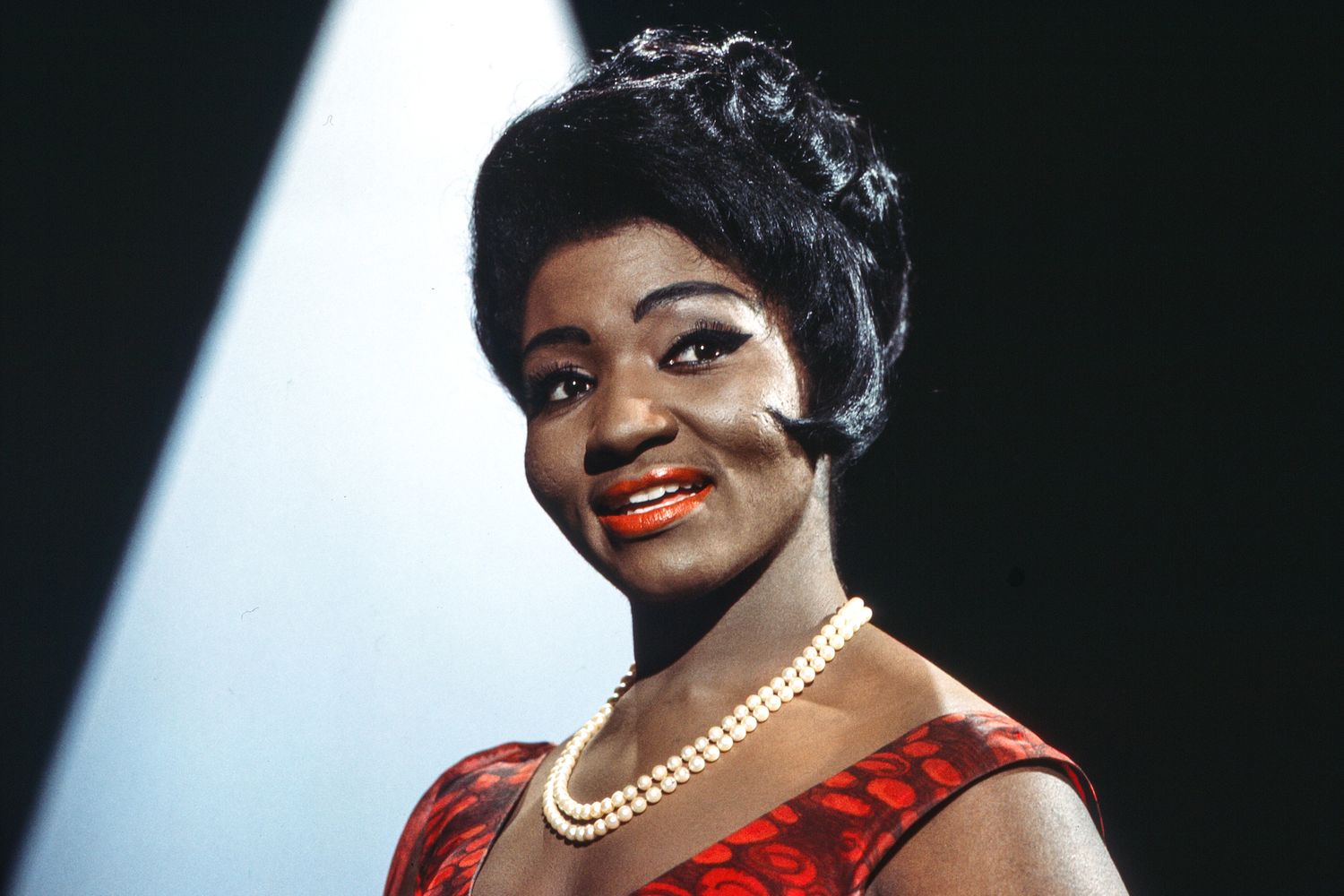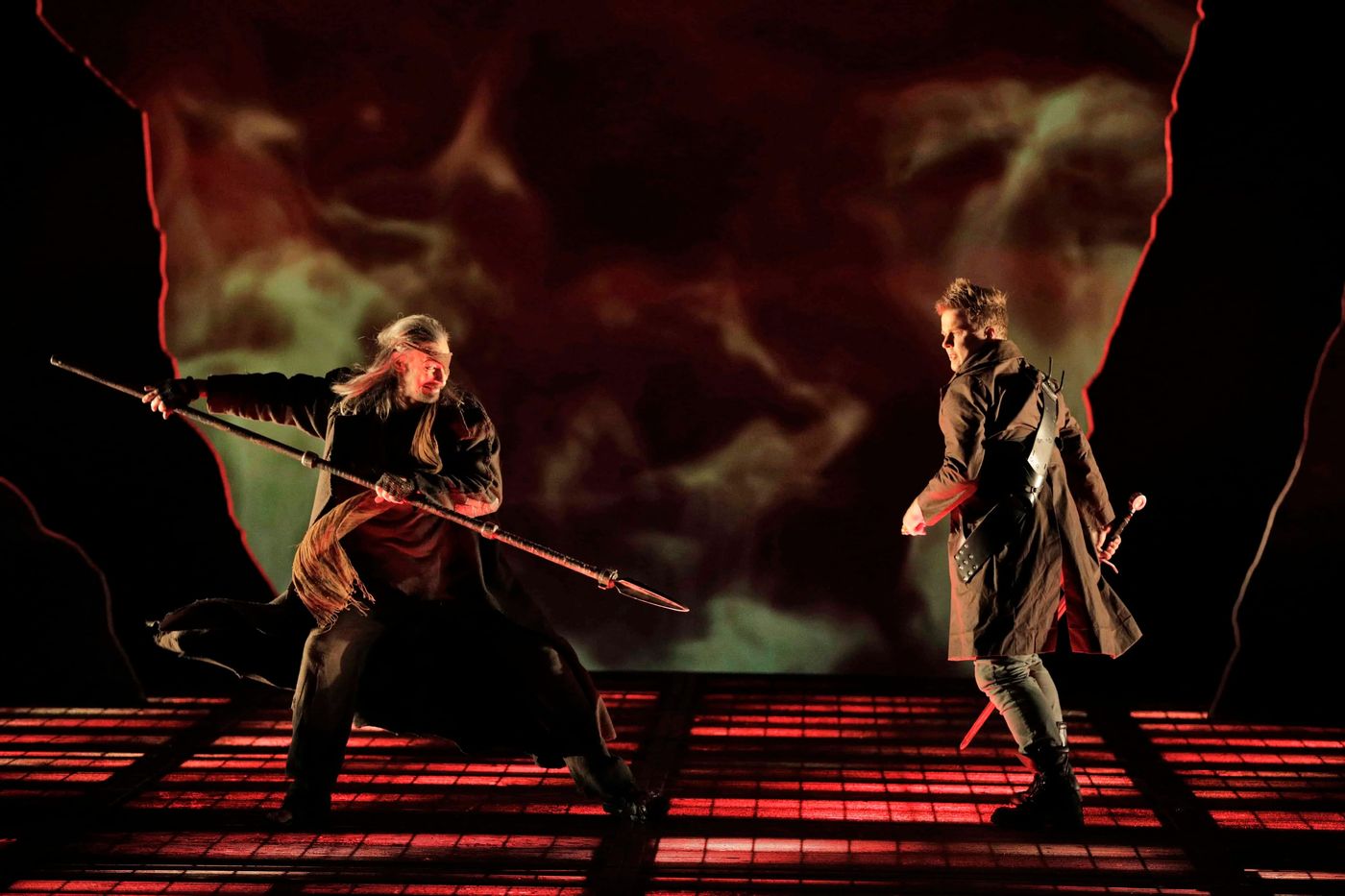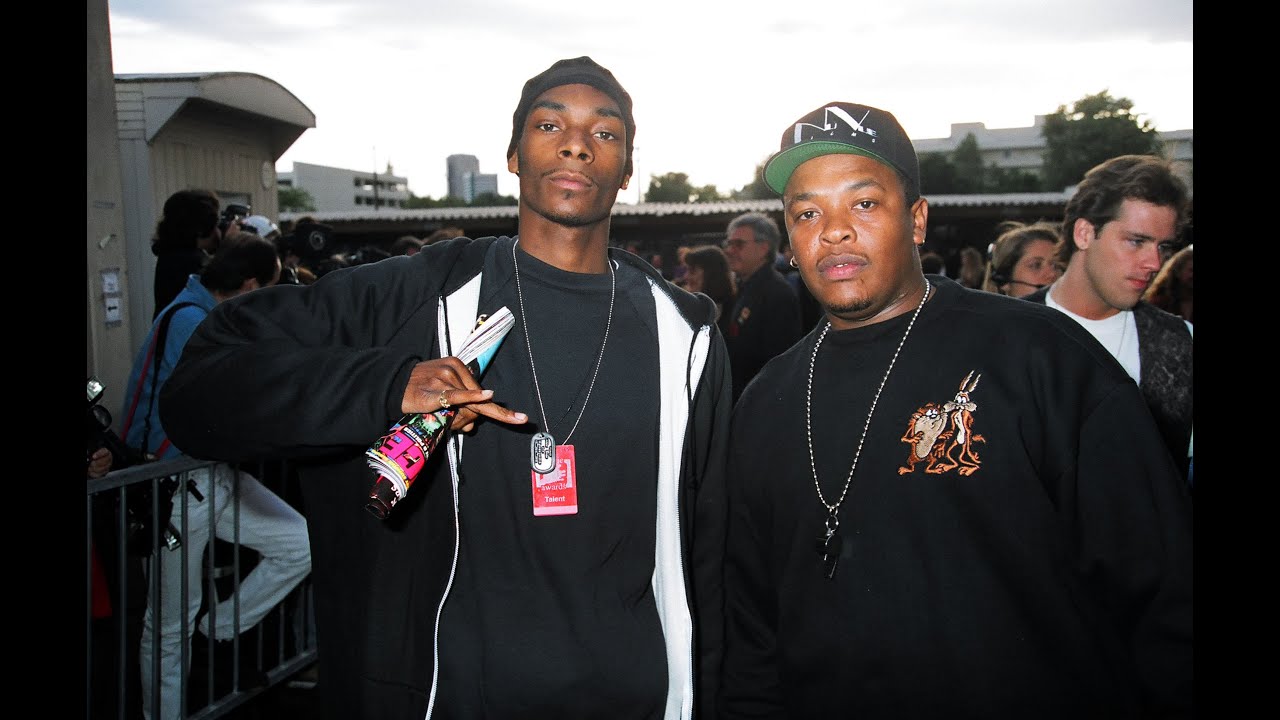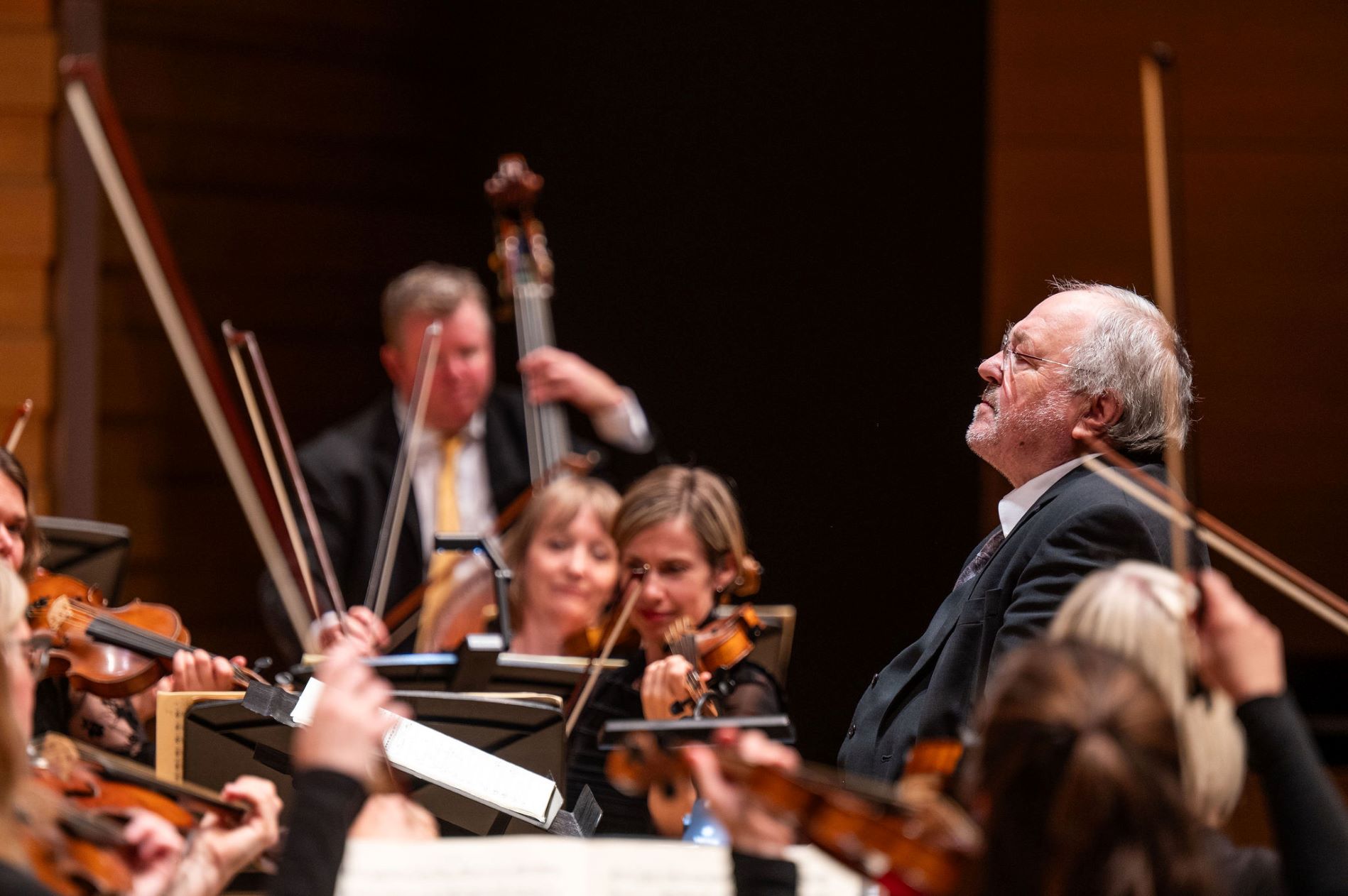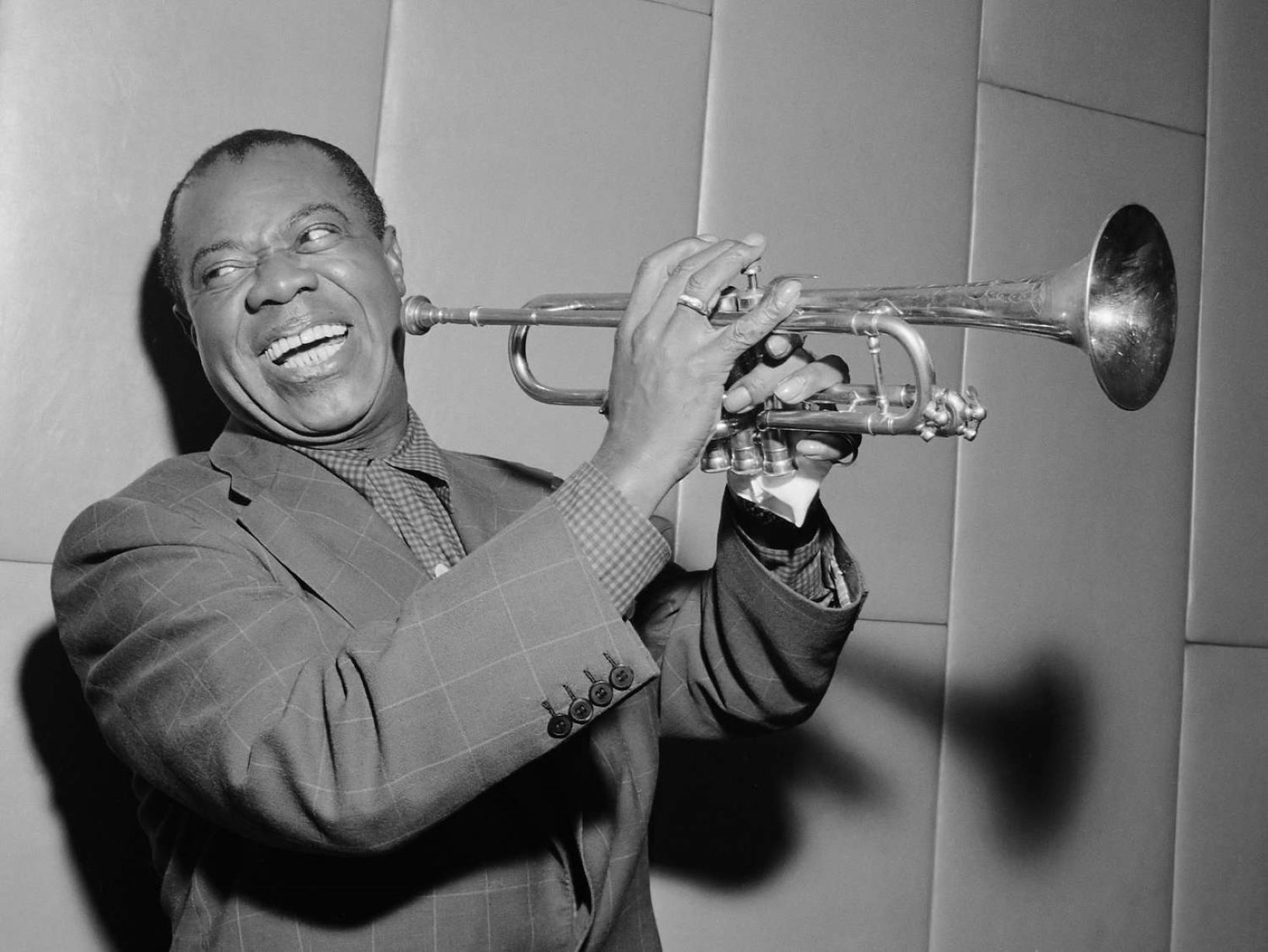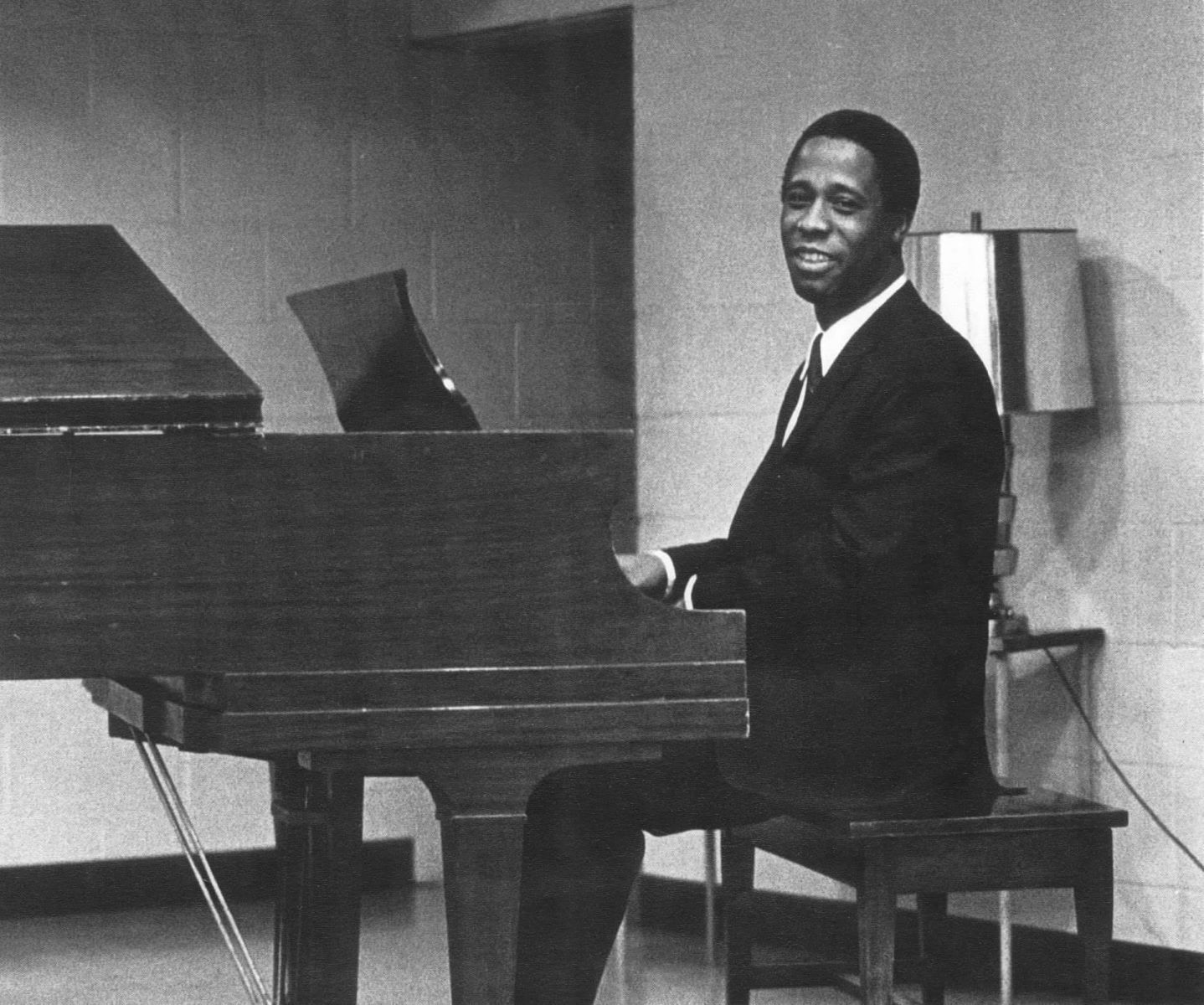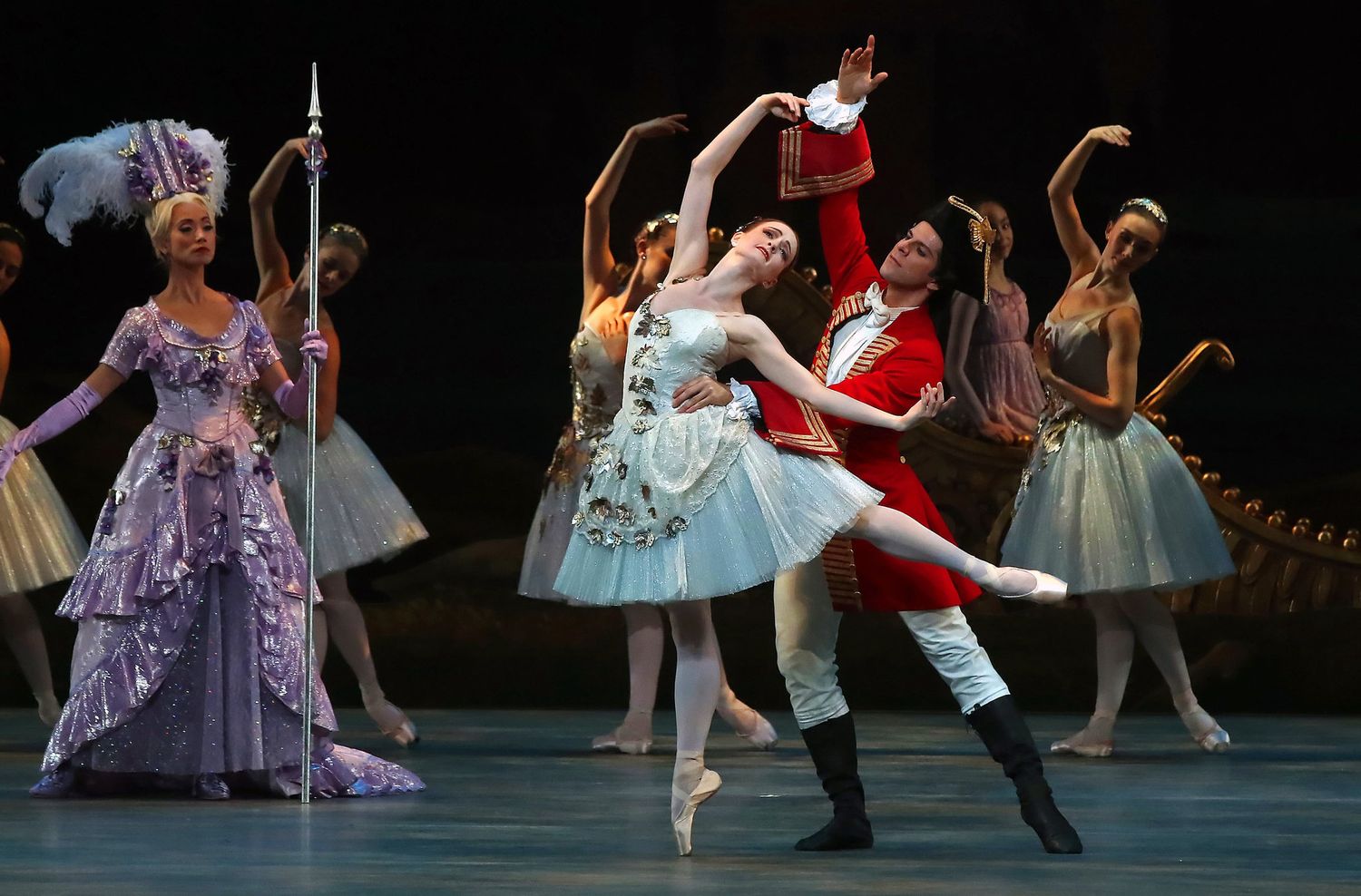Home>Events & Info>Opera>Who Wrote The First Opera?
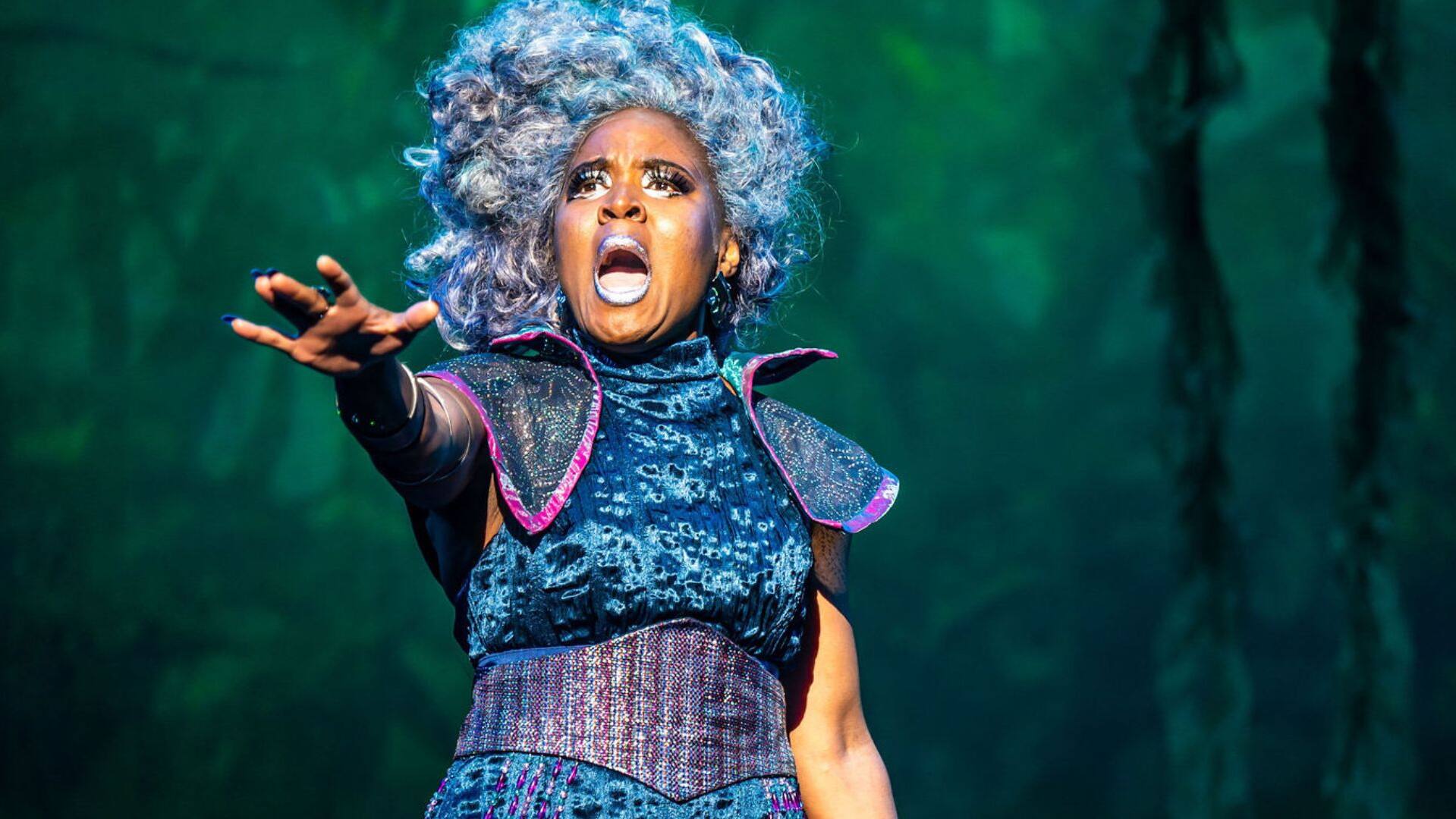

Opera
Who Wrote The First Opera?
Modified: January 22, 2024
Discover the history of opera and learn about the origins of this magnificent art form. Uncover who wrote the very first opera and explore its impact on music and culture.
(Many of the links in this article redirect to a specific reviewed product. Your purchase of these products through affiliate links helps to generate commission for AudioLover.com, at no extra cost. Learn more)
Table of Contents
Introduction
Opera, the magnificent art form that combines music, singing, and theatrical performance, has a rich and storied history that spans centuries. It is a form of entertainment that captivates audiences with its grandeur, emotion, and sheer beauty. But have you ever wondered who wrote the first opera?
The origins of opera can be traced back to ancient civilizations, where music and theatrical performances were an integral part of cultural expression. Over time, these forms of entertainment began to evolve and merge, leading to the birth of opera as we know it today.
In this article, we will delve into the early forms of musical drama, explore the development of opera in ancient Greece, and uncover the individuals who played pivotal roles in its creation. We will also focus on the first known opera and the composer behind it, shedding light on how opera emerged as a distinct genre.
Join us on this journey through time as we uncover the fascinating history behind the creation of opera and the individuals who paved the way for this remarkable art form. From ancient civilizations to the birth of opera in Renaissance Italy, prepare to be enthralled by the captivating tale of its origins.
Origins of Opera
The roots of opera can be traced back to ancient civilizations in different parts of the world. Music and theatrical performances have long been an integral part of human culture, serving as a means of storytelling and communal expression. In ancient Greece, for example, theatrical plays were performed as part of religious rituals. These performances often incorporated music and dance, setting the stage for the development of opera.
While ancient Greece laid the groundwork for musical theater, it was during the Renaissance in Italy that opera truly began to take shape. The flourishing artistic and intellectual movement of the time sparked a renewed interest in the dramatic arts, and a desire to recreate the grandeur of ancient Greece and Rome.
As a result, scholars and artists began to explore ways to combine music, poetry, and drama into a unified art form. This new form of entertainment, known as opera, emerged as a synthesis of various artistic disciplines, with the aim of creating a complete and immersive theatrical experience.
The origins of opera can also be attributed to the Florentine Camerata, a group of scholars, musicians, and poets who gathered in Florence during the late 16th century. They sought to revive the musical practices of ancient Greek drama, which they believed involved a closer integration of text and music.
By combining their knowledge of ancient Greek dramatic theory with the musical innovations of the time, the Camerata laid the foundation for what would become opera. Their ideas and experiments paved the way for a new form of musical expression that emphasized the power of melody, the importance of the text, and the emotional impact of the performance.
With the birth of opera, a new era of artistic expression was ushered in, setting the stage for centuries of mesmerizing performances and unforgettable musical masterpieces. The development of opera in ancient Greece and its subsequent rebirth in Renaissance Italy would forever change the landscape of music and theater, leaving an indelible mark on the world of performing arts.
Early Forms of Musical Drama
Before the emergence of opera, various forms of musical drama existed in different cultures and time periods. These early forms laid the foundation for the development of opera and showcased the integral role that music played in theatrical performances.
One of the earliest examples of musical drama can be found in ancient Greece, where the tradition of theatrical performances flourished. Greek tragedies and comedies were performed in outdoor theaters, accompanied by music and dance. The music, often performed on instruments like the lyre and aulos, served to enhance the emotional impact of the performance and create a deeper connection with the audience.
In ancient Rome, dramatic productions known as “fabulae Atellanae” were popular. These performances, which incorporated music and dance, were comedic in nature and featured stock characters. The music, typically performed on instruments like the flute and percussion, added a dynamic element to the storytelling.
During the medieval period, liturgical dramas were performed as part of religious ceremonies. These dramas utilized chants and sacred music to convey biblical stories and religious teachings. The performances often took place inside churches and monasteries, and the music played a central role in enhancing the spiritual experience.
Musical drama also found its place in the courtly entertainment of the Renaissance. The masques, elaborate spectacles with music, dance, and theatrical elements, were widely popular among noble courts in Europe. These performances showcased the wealth and power of the aristocracy and featured intricate costumes, stunning sets, and intricate musical compositions.
It is important to note that while these forms of musical drama paved the way for opera, they were distinct in nature and lacked the defining characteristics of opera as we know it today. It was the integration of music, words, and dramatic action in a cohesive and unified manner that set opera apart from these early forms of musical theater.
The early forms of musical drama laid the groundwork for the evolution of opera, serving as sources of inspiration and experimentation for composers and playwrights throughout history. They showcased the power of music in storytelling and paved the way for the birth of a new art form that would capture the hearts and imaginations of audiences around the world.
Development of Opera in Ancient Greece
Ancient Greece, known for its contributions to philosophy, art, and theater, also played a significant role in the development of opera. The Greeks laid the foundations for this art form through their innovative approach to theatrical performances and their integration of music and drama.
The ancient Greeks believed in the power of music to evoke emotions and connect with the divine. This belief was integral to the development of opera, as music became an essential component of the dramatic experience. The Greek tragedies and comedies, performed in open-air theaters, featured choral odes and musical interludes that heightened the emotional impact of the performances.
The plays of the renowned playwrights, such as Aeschylus, Sophocles, and Euripides, showcased the close relationship between poetry, music, and drama. The choruses in these plays sung verses to the accompaniment of musical instruments, adding depth and emotion to the storytelling. The Greek theaters were designed to maximize the acoustics and ensure that the audience could fully appreciate the power of the music.
One of the most significant contributions of ancient Greece to the development of opera was the concept of the “Greek chorus”. The chorus, a group of singers and dancers, provided commentary on the actions of the characters and helped to convey the emotions and moral implications of the story. Their performances were an integral part of the theatrical experience and showcased the fusion of music and drama.
The Greeks also had a tradition of lyric poetry, which was often accompanied by music. The lyric poets, such as Sappho and Pindar, composed verses that were sung or recited alongside musical accompaniment. These poetic compositions, known as “melos” in Greek, served as a source of inspiration for the poetic and musical elements of opera.
While the ancient Greeks laid the foundation for the integration of music and drama, it is important to note that their theatrical performances were not opera in the modern sense. Opera, as we know it today, emerged much later in history. However, the concepts and practices developed in ancient Greece set the stage for the birth of opera as a unified and immersive art form.
The legacy of ancient Greece in the development of opera is a testament to the lasting influence of their artistic and cultural achievements. The blending of music, poetry, and drama in the theatrical performances of ancient Greece provided a blueprint for future generations of composers and playwrights, igniting a passion for the creation of opera that continues to enchant audiences to this day.
The Florentine Camerata and the Birth of Opera
The birth of opera as a distinct genre can be attributed to the Florentine Camerata, an influential group of scholars, musicians, and poets who gathered in Florence during the late 16th century. Their collaborative efforts and innovative ideas laid the foundation for the development of opera as a unique form of artistic expression.
The Camerata, inspired by their fascination with ancient Greek drama and music, sought to revive the musical practices of that era. They believed that the combination of music and drama in the Greek tragedies and comedies resulted in a more powerful and emotionally engaging theatrical experience.
Their discussions and experiments led to a new approach to music and theater, one that emphasized the unity of text and music. They advocated for the creation of a new art form that combined poetry, music, and drama into a seamless and integrated whole.
One of the key figures of the Florentine Camerata was Count Giovanni de’ Bardi, who hosted regular gatherings at his residence where members would discuss and exchange ideas. These gatherings became known as the “Camerata de’ Bardi,” from which the name “Camerata” was derived.
Perhaps the most influential member of the Camerata was the composer and music theorist, Vincenzo Galilei. His theories on music and the aesthetics of ancient Greek melodies played a crucial role in shaping the development of opera. Galilei argued for the use of monody, a musical style in which a solo voice is accompanied by a simple harmonic bass, allowing for greater clarity in the delivery of the text.
Through the collaboration and experimentation of the Florentine Camerata, opera as a distinct art form began to take shape. Their discussions and ideas paved the way for the composition of the first opera, marking a significant milestone in the history of music.
While the ideas of the Camerata were groundbreaking, it was the composer Jacopo Peri who would bring their vision to life. Peri, often considered the father of opera, composed the first known opera, “Dafne,” based on an ancient Greek myth.
The birth of opera with Peri’s “Dafne” in 1598 marked a turning point in the history of music and theater. It represented the culmination of the efforts of the Florentine Camerata and their commitment to the integration of music, poetry, and drama. Opera would go on to capture the imagination of audiences across Europe, becoming a beloved art form that continues to thrive to this day.
Jacopo Peri: A Pioneer in Opera Composition
Jacopo Peri, an Italian composer and singer, holds a significant place in the history of opera as one of its pioneers. Born in 1561 in Florence, Peri is considered one of the key figures in the development of opera as a distinct art form.
Peri’s contributions to opera composition were groundbreaking, as he was one of the first composers to fully embrace the ideals of the Florentine Camerata and apply them to his works. He believed in the power of music to convey the emotions and the text to tell the story, and sought to create a seamless integration of music and drama.
Peri’s most notable work, “Dafne,” composed in collaboration with librettist Ottavio Rinuccini, is considered the first known opera. Premiered in Florence in 1598 as part of a wedding celebration, “Dafne” was an instant success and marked a turning point in the history of music.
“Dafne” tells the Greek mythological story of the nymph Daphne and her transformation into a laurel tree to escape the advances of the god Apollo. Peri’s composition incorporated recitative, a style of vocal delivery that is speech-like and allows for clear communication of the text. This recitative style, known as the “stile rappresentativo,” became a defining characteristic of early opera.
Peri’s innovative use of monody, a solo vocal line with simple accompanying chords, also contributed to the unique nature of his operatic compositions. With monody, the focus shifted to the solo singer who could effectively convey the emotions and narrative of the story. This approach allowed for a more expressive and intimate form of storytelling through music.
In addition to “Dafne,” Peri composed several other operas, including “Euridice” in 1600. Considered one of the earliest surviving operas, “Euridice” further showcased Peri’s mastery of the form. It featured a combination of recitative and arias, which became a standard structure in later operas.
Peri’s contributions to opera composition laid the groundwork for future composers to build upon. His focus on the close connection between music and text, as well as his experimentation with vocal styles, set the stage for the development of operatic conventions that would be refined and expanded upon by composers in the following centuries.
Jacopo Peri’s pioneering work in opera composition, marked by his collaboration with the Florentine Camerata and his innovative use of recitative and monody, played a crucial role in shaping the genre that we know and love today. His legacy as a pioneer in opera continues to influence and inspire composers and performers around the world.
Dafne: The First Known Opera
“Dafne” holds a significant place in the history of opera as it is widely regarded as the first known opera. Composed by Jacopo Peri with a libretto by Ottavio Rinuccini, this groundbreaking work premiered in Florence in 1598, marking a pivotal moment in the development of the operatic art form.
The story of “Dafne” is based on ancient Greek mythology and centers around the love between the god Apollo and the nymph Daphne. The libretto, written in Italian, follows the emotional journey of the characters and unfolds through recitative, a style of vocal delivery characterized by its close adherence to the natural rhythms of speech.
Peri’s composition of “Dafne” embraced the ideals of the Florentine Camerata, aiming to create a dramatic and expressive experience through the seamless integration of music and words. The use of monody, a solo vocal line accompanied by simple chords, allowed for a powerful communication of the text and an intimate connection with the emotions of the characters.
The premiere of “Dafne” was a resounding success, captivating audiences with its innovative approach to storytelling through music. It demonstrated the potential of opera as a powerful medium that combined poetry, music, and drama to create a comprehensive and emotionally impactful experience for the audience.
Unfortunately, the music of “Dafne” has been lost to history, with only fragments remaining. Nevertheless, its significance as the first known opera cannot be overstated. Its success paved the way for the further development of opera as an art form, inspiring future composers to explore the possibilities of music and drama.
The legacy of “Dafne” resonates in the numerous operas that followed, each building upon the foundations set by Peri and Rinuccini. Its influence can be seen in the works of renowned composers such as Claudio Monteverdi, who would go on to shape the opera genre with his own masterpieces.
While “Dafne” may be overshadowed by later and more well-known operas, its significance lies in its role as the pioneering work that sparked the birth of opera. It stands as a testament to the creative spirit and innovative thinking of the Florentine Camerata, and its impact continues to reverberate through the centuries in the countless operas that grace the stages of theaters worldwide.
Claudio Monteverdi and his Contributions to the Opera Genre
Claudio Monteverdi, an Italian composer of the late Renaissance and early Baroque periods, is considered one of the most influential figures in the history of opera. His innovative approach to composition and his groundbreaking works paved the way for the development of opera as a fully-realized art form.
One of Monteverdi’s greatest contributions to the opera genre was his ability to blend music and drama seamlessly, creating a heightened emotional impact for the audience. His operas, characterized by their vivid portrayal of human emotions and their expressive musical language, propelled the art form to new heights.
Monteverdi’s first opera, “L’Orfeo,” was composed in 1607 and is often regarded as one of the earliest and most important operas in history. Through this work, Monteverdi introduced a new level of depth and complexity to the operatic form, combining elements of Greek tragedy with the musical innovations of his time.
“L’Orfeo” tells the story of Orpheus, a legendary musician who descends into the underworld to rescue his beloved wife, Eurydice. This opera showcased Monteverdi’s mastery of expressive melodies, dramatic harmonies, and powerful choruses, effectively conveying the emotional depth of the narrative.
Monteverdi’s revolutionary use of recitative, a style of singing that resembles speech, brought a newfound realism and immediacy to the operatic stage. This allowed for a more natural and direct form of storytelling, with the music serving as a powerful tool for emotional expression and character development.
Another notable work by Monteverdi is “L’incoronazione di Poppea” (The Coronation of Poppea), composed in 1643. This opera explores the story of the Roman emperor Nero and his love affair with Poppea, a powerful and ambitious woman. Monteverdi’s masterful portrayal of complex characters and intricate relationships in this opera sheds light on the depths of human nature.
In addition to his individual works, Monteverdi also played a crucial role in the evolution of opera through his advocacy for the genre. His writings on music theory and his treatise “L’Artusi, overo delle imprese musicali” have provided invaluable insights into the principles of opera composition and performance practices of his time.
Monteverdi’s contributions to the opera genre elevated it from a form of entertainment to a powerful medium for emotional expression and storytelling. His ability to capture the human experience through music and his innovative approach to composition have had a lasting impact on the development of opera as an art form.
Claudio Monteverdi’s legacy as a pioneer in opera continues to inspire composers and performers to this day. His groundbreaking contributions have laid the foundation for the opera we know and enjoy today, enriching the world of music and theater with his immense talent and artistic innovation.
Conclusion
The journey through the origins and development of opera takes us on a fascinating exploration of music, drama, and the human spirit. From its early forms in ancient civilizations to the influential work of composers like Jacopo Peri and Claudio Monteverdi, opera has emerged as a compelling and captivating art form.
Opera is a testament to the power of human creativity and the desire to push the boundaries of artistic expression. It combines the emotive power of music, the power of words, and the power of theatrical performance to create a unique and immersive experience for audiences.
The Florentine Camerata, with their vision of unifying music and drama, laid the groundwork for the birth of opera as a distinct genre. Jacopo Peri, through his composition of “Dafne,” and Claudio Monteverdi, with his masterpieces like “L’Orfeo” and “L’incoronazione di Poppea,” pushed the boundaries of opera, adding depth, complexity, and emotional resonance.
Through their contributions, opera has evolved into an art form that can transport audiences to different worlds, evoke a wide range of emotions, and explore the depths of the human experience. It combines the power of music to stir the soul, the power of words to tell compelling stories, and the power of performance to bring characters to life.
The legacy of these early pioneers and the countless composers, librettists, singers, and performers who have contributed to the opera genre cannot be overstated. Opera continues to captivate audiences around the world, enchanting them with its melodies, stories, and spectacle.
As we marvel at the grandeur and beauty of opera, let us also appreciate the rich history and the incredible talent and creativity that has brought it to life. From ancient Greece to the Renaissance to the present day, opera remains a testament to the power of art to transcend time and touch the depths of the human soul.
So let us embrace the magic of opera, immerse ourselves in its enchanting stories, and celebrate the remarkable individuals who have shaped this extraordinary art form. Whether in the grand halls of opera houses or through the accessibility of digital platforms, let us indulge in the power, emotion, and beauty of opera for generations to come.

